A Brief Colonial History Of Ceylon(SriLanka)
Sri Lanka: One Island Two Nations
A Brief Colonial History Of Ceylon(SriLanka)
Sri Lanka: One Island Two Nations
(Full Story)
Search This Blog
Back to 500BC.
==========================
Thiranjala Weerasinghe sj.- One Island Two Nations
?????????????????????????????????????????????????Monday, July 11, 2022
Why is Sri Lanka below the breadline...? Another true reason nobody talks about...!
-Sunanda Deshapriya reveals
(Lanka-e-News -30.June.2022, 11.30PM) The people of the South were able to see a shadow of militarization when Gotabaya Rajapaksa imposed emergency rule and curfew, and called the army to Colombo to face the "GotaGoHome" youth protests.
Gotabaya Rajapaksa used militarization as one of the tools to govern the country. He even handed over control of the Covid plague to the Army Commander; such a thing did not happen in any country in the world. Covid control was completely militarized.
He appointed military officers to presidential task forces related to the economy. At least two dozen retired military officers were appointed to the civil administration.
Gotabaya took steps to recruit 100,000 under the Army and build an additional informal force.
All of them, altogether with all those programs were failed in the manner the "Sir" was failed. Even Shavendra has now fallen on his sword.
The militarization of public administration is an extension of the militarization of the North East. It was Gotabaya's nightmare.
Even today, more than a decade after the end of the war, there is severe militarization in the North East, especially in the North region. There is not a day that army and armored vehicles do not travel on the roads of Jaffna.
Army expenditure is double that of education and health...
The population of Sri Lanka is 227 lakhs. The active three-armed forces in the country are 255,000. The parallel military force is 92,000. There is an additional force of 5,500 men.
Defense expenditure for 2022 is Rupees 373 billion. This is an increase of 14% over 2021. It accounts for more than 10% of total government spending. It's almost twice as much as spending on education and health.
The world's average war expenditure is 6.5% of government spending.
Even thirteen years after the end of the war, Sri Lanka has not reduced its military spending or military power.
The Sri Lanka Army has 19 battalions or divisions. Sixteen (16) of them are located in the North East (2015).
In the year 2022, Sri Lanka Army was ranked 79th out of 142 countries surveyed. (www.globalfirepower.com)
Cost of secret account is more than the cost of entire judiciary...
It is said that the secret budget of the Ministry of Defense is higher than the budget of the Ministry of Justice. Expenditure incurred under this Expenditure Head does not come under an audit, and is said to be paid for intelligence obtained from civilians and members of the Civil Intelligence Service. It is said that it was not possible to trace the payments made to Saharan's team because those payments were made from this account. It is possible that this money is also being used for 'Buddhismization' in some parts of the North.
It is said that this fund could be used by the Chiefs of the Armed Forces and the Secretary of Defense, but there are no specific details. (An Army Commander had once told this correspondent that his Director of Intelligence would not give him any details other than the total expense figure of the year.)
This secret budget is a result of colonialism. But now many of Britain's colonies have brought these types of secret budgets under audit. This Expenditure Head is now subject to audit in India as well as in Britain.
Issue is not just the size…
Militarization is not just how many troops are stationed in an area quantitatively. The extent to which the civil administration is influenced by the military is also a decisive factor.
There are many cases where former army chiefs were appointed as governors in the Northern Province.
The effects of this widespread militarization have permeated all sectors of society. Tamils fear for safety of themselves and their children when constantly encountering army personnel on roads, markets and schools.
Militarization is visible openly as well as underground. Army collects phone numbers of former LTTE members, constantly asking them for details. Also, such personnel have been recruited to work in army farms. Another group is connected with the army's intelligence divisions. The Army Intelligence investigates any protests in the North East and videos the incidents publicly.
Amazing temples with a single one monk...
Militarization in the North East is related to forced 'Buddhismization'. The Presidential Task Force appointed to search for antiquities in the Eastern Province was primarily composed of Buddhist monks and military officers.
Buddhist antiquities in the North region belong to the Tamil Buddhist culture. But all of that is now being built with the protection of the military as an aggressive religion. Temples with a single monk and an army camp are still being established in the North region.
Almost every army camp in the north has a Bo tree and a temple. Once a Bo tree grows, it becomes eternal. Tamil Buddhists are rare today. However, the Sinhala Buddhist Army has established large and permanent camps and is living in those areas.
Army scares civil society openly…
The army is openly terrorizing the civil society in the North. Intimidation, constant surveillance and restriction on civil society organizations in the North and East is another aspect of militarization. There were reports that three-wheelers belonged to or maintained by military intelligence are parked in front of such organizations.
In the regions in the South, the tri-forces does not organize school festivals, sports, etc. They do not go to schools and give lectures. Books are not distributed to poor school children. Subsidies are not distributed to poor families. The military does not organize Vesak festivals. Such actions are belonged to the civil administration. But the army in the North is doing all those things!
In the regions in the South, such activities are done by the police. Devolution of police duties to the military is an ominous sign of militarization. The police and the tri-forces are organizations with different duties. Maintaining the rule of law belongs to the police and the tri-forces' duty is the national security.
A number of tourist hotels in the North East are also belonged to the armed forces. They have large farms, too.
Another aspect of militarization is the seizure of Tamil lands by security forces. Even more recently, there have been several reported attempts to grab more land.
All of these are activities that should be subject to civil administration.
But in the North, tri-forces intervene in such civil affairs. It is clearly a militarization of civilian rule. Military interference in civilian administration is a regular occurrence in the North and it is now firmly entrenched.
One army soldier for every two civilians...
One of the worst areas affected by this militarization is Mullaitivu where the last battles of the war took place. About 60,000 army personnel are deployed there. It is 25% of the country's total military power. Mullaitivu has a population of just over 130,000. It is 0.6% of the country's population. These statistics show that there is an Army soldier for every resident. This is in addition to the air and naval forces stationed there.
It is also reported that 30,000 acres in Mullaitivu are under the army control. Most of the LTTE-owned and other state lands have been handed over to the military control.
Militarization tramples the basic rights of the Tamil people in this country and has created an environment of fear. Many reports indicate that it is very difficult to ascertain the true state of militarization.
Silence of the disgusting media...
Militarization is a massive violation of human rights. Another tragedy is that this terrible silence militarization conspiracy has been able to suppress the Sinhala media in the country.
This is a country where people lined up to pay homage to a "baby snake" thrown into a five-liter skewed plastic bottle, tens of thousands wrestled to drink “Dhammika honey”, and thousands who were deceived by the Rajapaksa propaganda and sent to watch matches wearing 'yellow.' Therefore, it not too hard for the disgusting media to cover up the actual militarization in the North.
Reducing war expenditure is one bold step that Sri Lanka needs to take to overcome the crisis it faces today, but no political party is talking about it because all of them are moving in the same direction of popular politics.
-Sunanda Deshapriya
---------------------------
by (2022-06-30 23:05:16)
Flowers and prayers for victims of Navaly church bombing
The Church of St Peter in Navaly commemorated over 140 Tamil civilians that were killed in its premises by Sri Lankan Air Force bombs 27 years ago.
10 July 2022
On July 9 1995, the Sri Lankan Air Force bombed the St Peter’s Church in Navaly and the nearby Sri Kathirgama Murugan Kovil, which were both sheltering displaced Tamils from army bombardment.
A total of 13 bombs were dropped on the sheltering shrines, killing 147 on the spot with many more succumbing to injuries later.
The bombings were part of a Sri Lankan military assault to capture the Jaffna peninsula after negotiations between the Liberation Tigers of Tamil Eelam (LTTE) and the then government of President Chandrika Kumaratunga broke down in contentious circumstances. The government accused the LTTE of rebuffing its peace efforts. The LTTE said the government was insincere about the peace and was playing for time.
The Tamil National People's Front Spokesperson Kanagaratnam Sugash and the party's Secretary Selvarajah Kajendren also paid their respects at the memorial monument yesterday. Speaking to the press, Sugash said the Tamil nation sees the massacre at St Peter's church "as part of the bigger and deliberate ethnic cleansing" of Tamil people.
“While we pray for the lives that were lost that day, we believe that only when an international investigation takes place on the Eelam Tamil genocide that the Tamil nation and the lives that were killed will receive justice,” he added.
“In Colombo, whilst there are ongoing protests being staged against the war criminals by the very people they raised, our efforts to remember those that were killed are being met with disruption and intimidation by the Sri Lankan government and the Criminal Investigation Department.”
“This proves that they have still not learnt from their mistakes, and also shows that they may never change,” he went on.
“By not even allowing for a peaceful remembrance event to take place today, by intimidating us even today without any empathy or compassion, the Sri Lankan government are proving that their racism against Tamils will never end.”
“We stand strong in our core demands, our journey for justice for the Eelam Tamil genocide will continue.”
Related Articles:
Competing Interests For Power To Govern Sri Lanka For A Better Society
Picture by Angelo Samarawickrema
By Siri Gamage –JULY 9, 2022
When a country goes through a period of turmoil and instability, it offers us an opportunity to reflect on the causes of such instability and turmoil for a better understanding of the situation. Some refer to the current circumstances of hardship as an outcome of country’s political culture since independence. Others characterise it as purely economic. Yet others want to explain the circumstances that led to current situation as both political and economic. They argue that if there is to be a sustainable solution it has to be both economic and political. Some writers try to understand the past by way of looking at specific leaders who ruled the country adopting a more personalised approach. Some try to reduce the economic problems to a dollar issue that emerged after the Pandemic. All these approaches are valid to a certain extent. But in this article, I explain several fundamentals we need to keep in mind when looking at what’s happening in the country today and the way forward.
We have to ask whose interests are served by the existing institutions and institutional framework for managing the economy and polity? Does our representative democracy work to meet the aspirations and needs of constituents? The core functions of a people-friendly government are to a) provide basic services b) security of life and property c) Justice in the affairs of country, locality and inter-personal activities and relations d) dignity of identity as a people and nation e) corruption-free management of the country’s affairs f) Contribute to maintain the country’s moral and ethical order g) maintain law and order to achieve peace and resilience. Taken together, these functions can in the end secure people’s trust in the governance and management institutions. If the institutions are not functioning well and they rather serve the interests of a few due to historical, political or economic reasons, and the people’s trust is lost then it can lead to an anomie situation where people lose not only the trust by also respect. What we witness today is a situation where the government in place has lost both. Periodic situations of anomie can be witnessed including on May 9th. If the mass protests planned for today (9th July) do not end up peacefully another situation of anomie can emerge. It will be not for the good of the country and its people.
We have to accept the fact that the management of country’s affairs has dismally failed. The reasons for taking the country near bankruptcy are many. Ultimately, leaders who ruled the country in recent decades should be responsible. What does responsibility means is another question? Whether they should be allowed to stay in leadership positions needs to be debated and come to some conclusions. But what the current situation shows is that the method used to run the economy and the country thus far is not working and a new method should be found. Or at the minimum drastic changes to the former method must be enacted in both economic and political fields. Otherwise, we will not be able to find a lasting solution. Remember when we had the conflict with LTTE, various governments adopted different approaches. Some failed. Finally, another approach was adopted to defeat the evil forces. A similar re-assessment of the approach and methodology to address current problems are required if the country is to find a lasting solution. Short term fixes may not help.
Let’s look at the crisis in the body politic. There are serious problems in our governance methodology including the three pillars. i.e. Executive, parliament and judiciary. Various attempts for reforms in these sectors in the past including All party Conferences ended in failure. Before the last presidential and parliamentary elections, there were renewed interest on the necessary reforms but after the elections and the onset of the pandemic discussions became sporadic. Nonetheless, the concerns that the more informed segments of society have about the failures of the governance system including the Provincial councils, the public service, nepotism and politicisation need immediate attention and follow-up action. Any attempt to isolate the economic crisis from these governance issues cannot yield long term results. Need for an independent public service that is not beholden to political manoeuvring is critically important to maintain stability and continuity in decisions made.
When we say that the system has failed the people, what does it mean? Primarily, the resources in the country are not shared equally among the people. A few gets more than their due share and a large majority miss out. There is no egalitarianism in the fields of economy, polity, education, or other important institutions. In a society where the people compete for limited resources, unless there is a just system and processes in place, chaotic outcome is inevitable. Where there is no egalitarianism and associated principles or practices in place, we can’t expect justice either. Justice in the country is a rare commodity. Even within institutions that are in place for the very purpose of ensuring that justice is meted out equally. Long delays and semi colonial practices in the law enforcement agencies prevent the average Lankan from receiving procedural or consequential justice. This is related to lack of de facto citizenship rights on ground. Police stations are hated by people as they function as punishment agencies rather than those that mete out justice. Politicisation of these institutions including the public service is a serious problem eating into the fabric of public institutions. There is no trust in the institutions, personnel or procedures. When institutions operate on the basis of who one knows it puts the large majority in a different basket. They suffer due to the lack of attention to their needs from those who are in authority.
Read More
Strict Legal Measures must be enforced against the police STF personal who assaulted Sri Lanka’s News first Journalists – FMM
By Sri Lanka Brief-
(Media Release.)The Free Media Movement (FMM) strongly condemns and deplores the violent assaults on four Sri Lanka’s News first Journalists covering a protest in front of Prime Minister Ranil Wickremesinghe’s residence and six journalists who came to rescue them by several police personnel from Sri Lanka’s Special Task Force (STF).
During the crisis situation, it is the sole responsibility of journalists to report every incident in detail. This is in accordance with the fundamental laws declared and recognized in the Constitution. Therefore, the Free Media Movement strongly asserts that journalists who have been violently assaulted have suffered violations of their fundamental rights and further demands that strict law enforcement be taken against the perpetrators of these violent assaults.
Furthermore, the Free Media Movement ascertains that at the time of attack, the respective journalists were endowed with fundamental rights under Articles 14(1)a and 14(1)g of the Constitution and Article 11 of the Constitution which states that no person shall be subjected to torture or to cruel, inhuman or degrading treatment or punishment.
Additionally, Sri Lanka has enacted the Convention against Torture and other Cruel, Inhuman or Degrading Treatment or Punishment Act No. 22 of 1994 to give effect to the United Nations Convention against Torture. The Free Media Movement is of the position that the Police and Special Task Force officers who brutally assaulted journalists engaged in reporting should also be convicted under this act.
Hence, FMM calls upon the Inspector General of Police, Police Commission and the Human Rights Commission to investigate and bring to justice the perpetrators responsible for these brutal attacks.
Free Media Movement
Newsfirst.lk
Sri Lanka protests: How did we get here and what comes next?
Protesters occupying government buildings say they will remain until the president and PM step down.


A demonstrator walks in the garden at the prime minister's residence in Colombo, Sri Lanka [Dinuka Liyanawatte/Reuters]
Following months of economic, political, and social turbulence in Sri Lanka, thousands of protesters stormed key government buildings in the capital Colombo on Saturday, including the official residence of President Gotabaya Rajapaksa.
Protesters later set fire to Prime Minister Ranil Wickremesinghe’s personal residence.
KEEP READING
list of 3 itemsPhotos: All that happened in Sri Lanka on big day of protests
Sri Lanka’s President Gotabaya Rajapaksa to step down
At least 50 people, including journalists and policemen, have been injured in the unrest.
President Rajapaksa has announced he will resign on July 13, Sri Lanka Parliament Speaker Mahinda Yapa Abeywardena told the media.
Protesters remain at the president’s house, the Presidential Secretariat, and the official residence of the prime minister, known as Temple Trees, saying they will continue to occupy the buildings until the president and the prime minister officially resign.
How did it come to this, and what is the likely road ahead for Sri Lanka?
How did we get here?
- Sri Lanka has been facing balance-of-payment issues since the 1950s, and has bridged the gap between imports and exports through dollars earned from borrowing, tourism and remittances from foreign workers.
- After being elected in 2019, President Gotabaya Rajapaksa slashed taxes, which deprived the state of much-needed income.
- This led rating agencies to downgrade Sri Lanka’s credit ratings, which made it harder for Sri Lanka to borrow from international capital markets.
- Due to the COVID-19 pandemic, earnings from foreign tourists and remittances plummeted. Economists warned that Sri Lanka might not be able to repay its foreign debt and urged the government to approach the International Monetary Fund (IMF).
- During 2022, inflation in Sri Lanka skyrocketed to almost 55 percent. Central Bank Governor Nandalal Weerasinghe said that inflation could rise to 70 percent in the coming months.
- The growing economic crisis started a series of protests that began on March 31 and that culminated in the storming of the president’s residence on July 9.
The Rajapaksa legacy
- The Rajapaksa family has dominated Sri Lankan politics since 2005, following the election of Mahinda Rajapaksa as the country’s president.
- Gotabaya Rajapaksa, the younger brother of Mahinda, won the 2019 presidential election in a landslide. This was followed by a 2020 general election in which his party won an overwhelming majority in parliament.
- He lost popularity following a number of policy errors, especially a disastrous agricultural policy.
- If Gotabaya Rajapaksa resigns on Wednesday, he will be the first Sri Lankan president who was unable to complete his tenure. The only parallel in Sri Lankan history is the resignation of Prime Minister Dudley Senanayake in October 1953 following a hartal – a mass protest involving strike action and civil disobedience.
- The current crisis undermines the Rajapaksa dynasty, and political analysts say the Rajapaksas are a spent force in Sri Lankan politics, at least for the next few years.
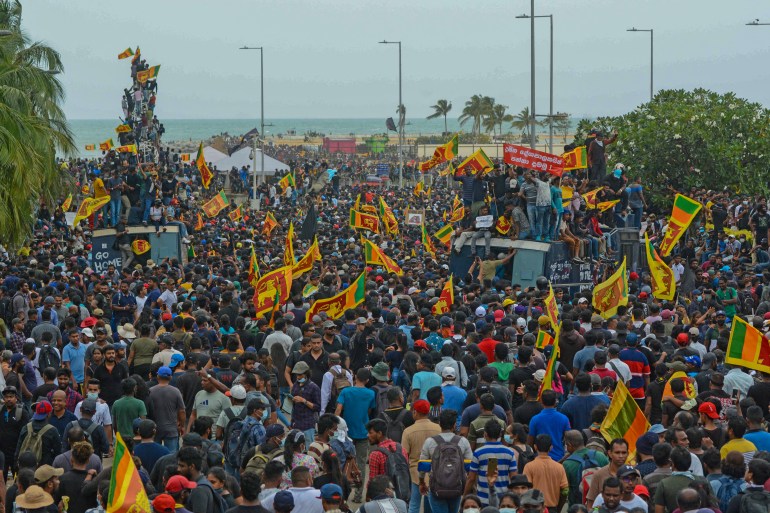
The road ahead
- Following the resignation of the president, a government headed by the speaker of parliament is expected to lead the political transition to a new administration.
- However, the parliament must choose the next president within a month, and it is unclear whether members of parliament will be able to elect someone who can garner the support of the majority of lawmakers (113), as well as legitimacy in the eyes of the public.
- President Rajapaksa’s party still holds a majority in parliament. Without their corporation, a credible and legitimate government can not be elected and mass protests may continue.
- Sri Lanka is also in the middle of discussions with the IMF for an Extended Fund Facility (EFF) lending arrangement, and needs a functioning government to continue its negotiations. The IMF and other countries have urged Sri Lanka to reach a political settlement as soon as possible.
- A stable government would also help the country’s ability to negotiate an IMF agreement and implement policy recommendations.
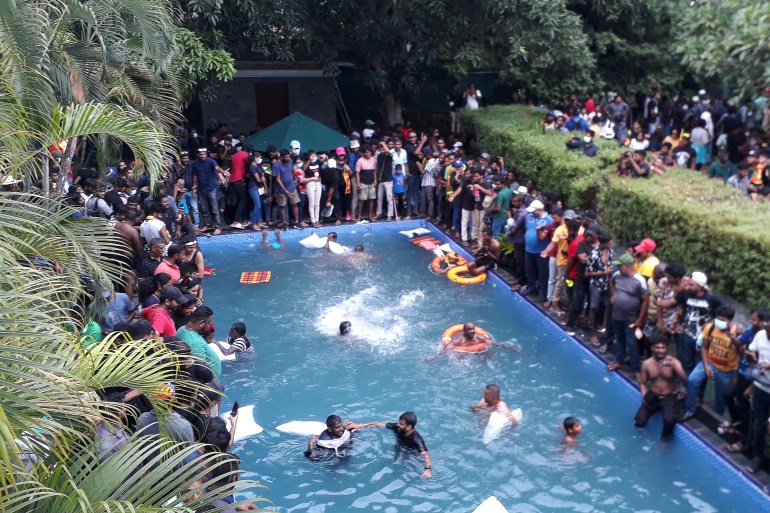
Carnage in Colombo – Protestors raid President’s home and set Prime Minister’s residence ablaze
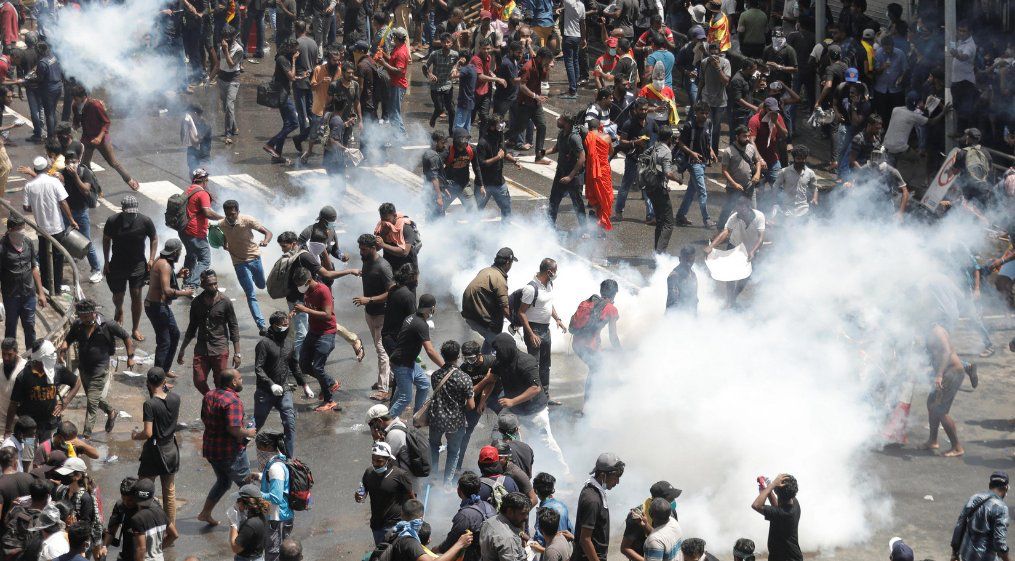
Protestors fend off tear gas in Colombo.
09 July 2022
Sri Lanka's embattled president Gotabaya Rajapaksa has fled the capital, Colombo, as tens of thousands of protesters stormed his official residence this morning, as anti-government demonstrations amidst a crushing economic crisis coming to a head.
At the time of writing, protestors are currently still outside the private residence of Ranil Wickremesinghe, who just hours ago agreed to step down as the country’s prime minister. Demonstrators have set the residence alight.
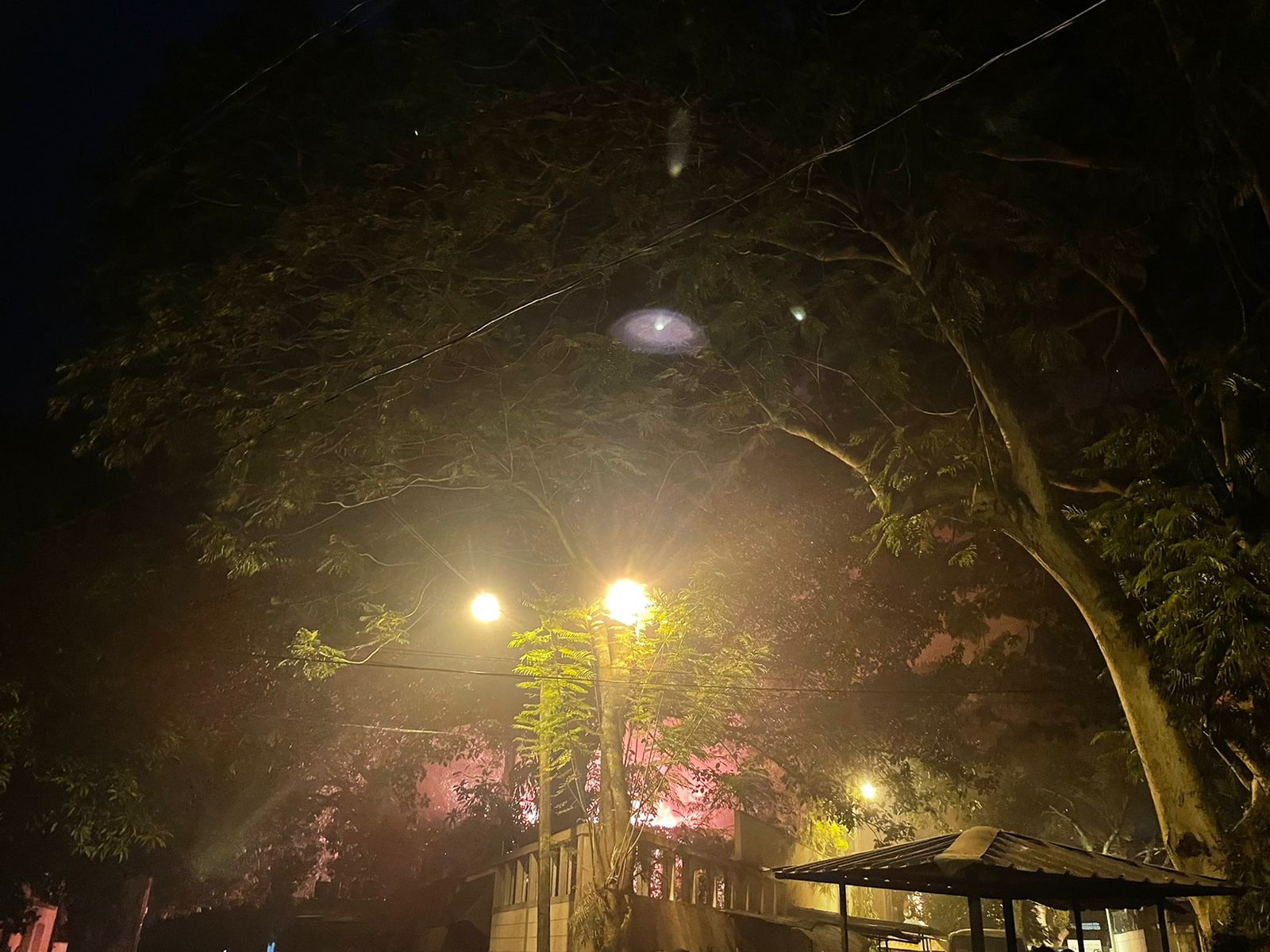
Demonstrators chant as Wickremesinghe's residence burns.
The protest outside Wickremesinghe’s residence came as tens of thousands descended upon Rajapaksa’s official residence in Colombo this morning. The demonstrations had been planned for days, as part of a series of rallies calling on the Sri Lankan president to retire, with a heavy security presence across the capital.
As the scale of the protests became clear, however, Rajapaksa was nowhere to be seen as demonstrators scaled walls and gates into his residence. Some took a dip in his pool, whilst others rummaged through his personal belongings and even his underwear, as anti-government slogans were chanted.
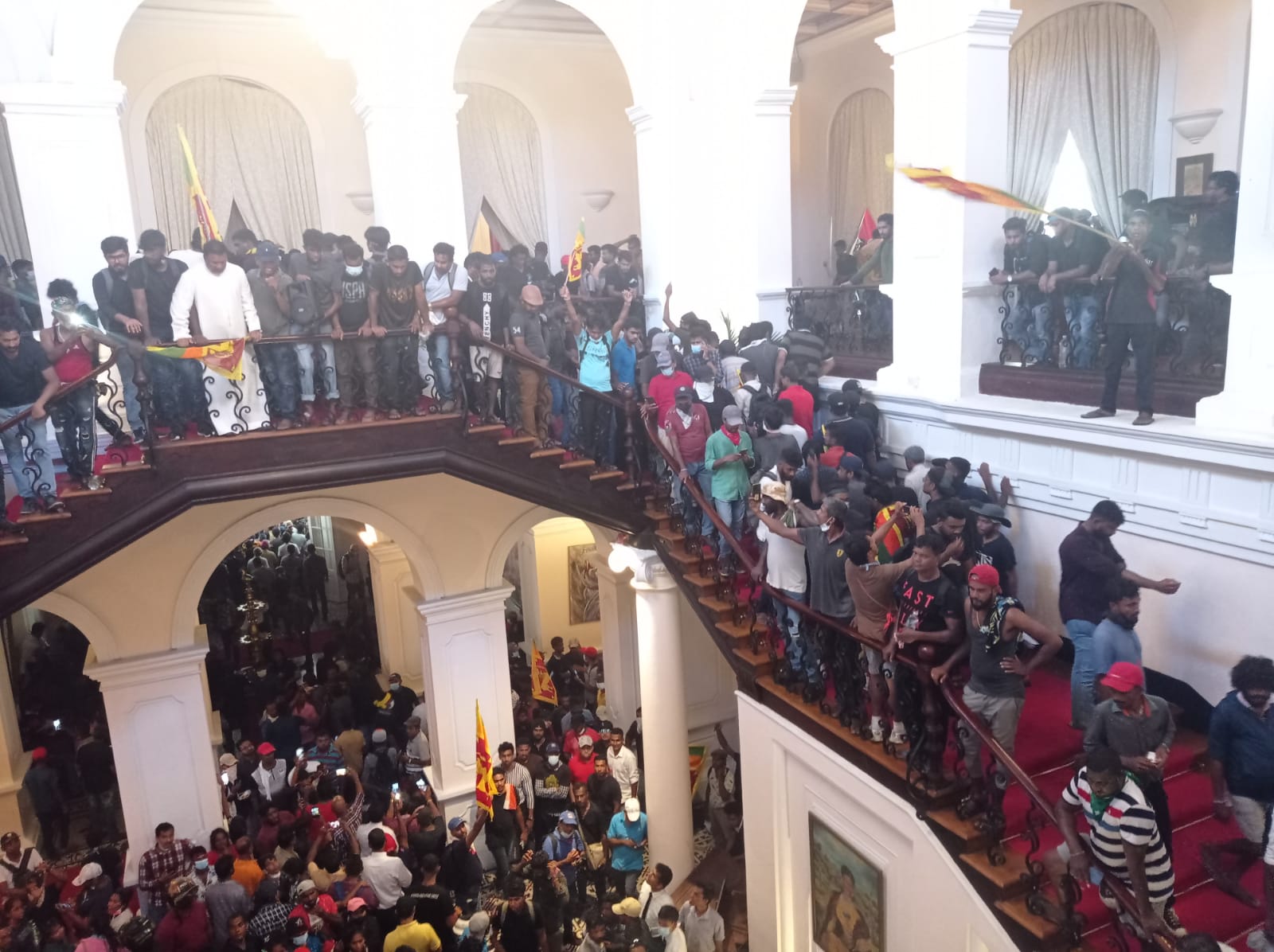
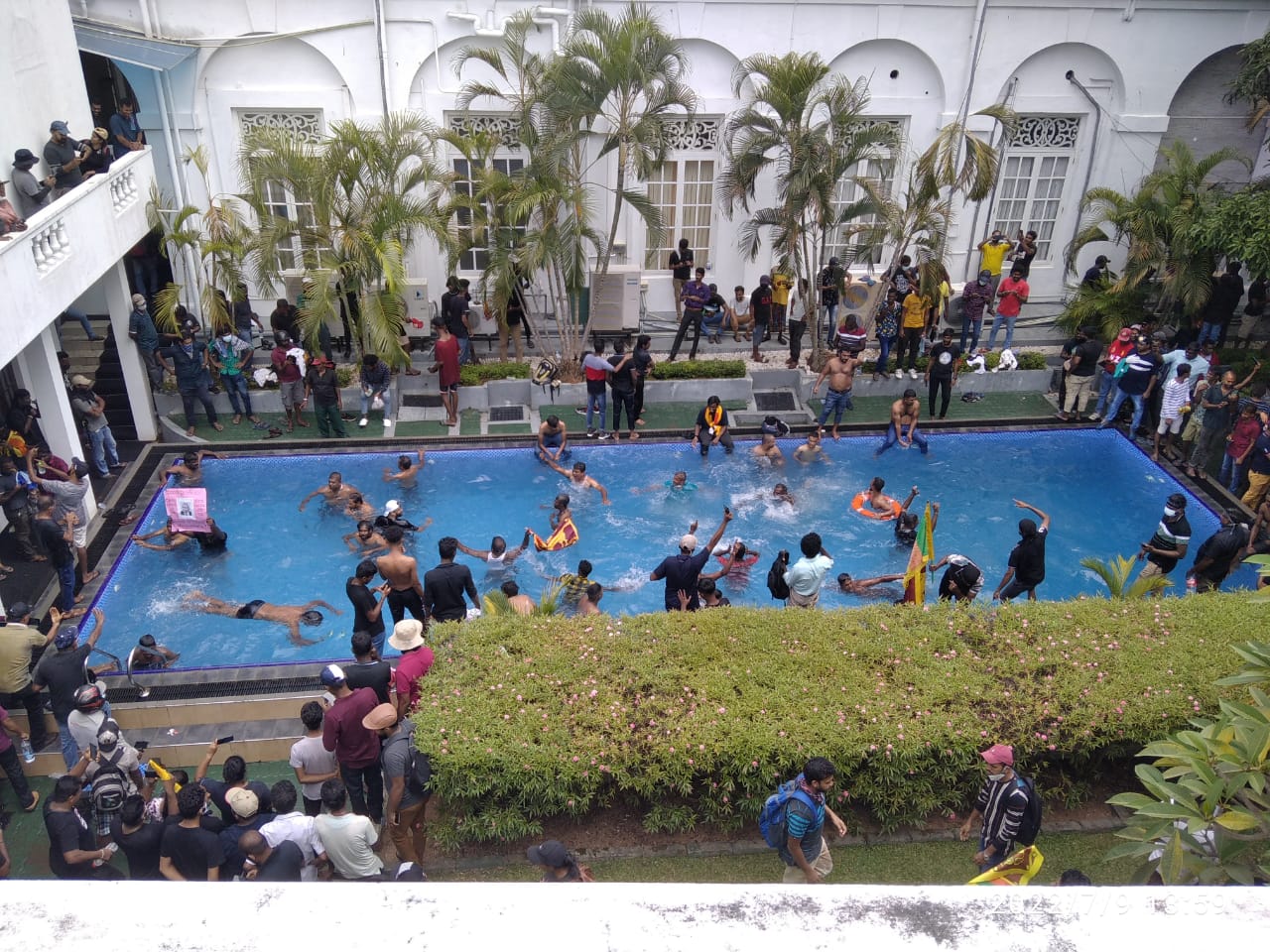
Protestors inside the official residence of Gotabaya Rajapaksa.
The security forces attempted to quash the protests with brute force, using teargas, water cannons and even live ammunition with reports that at least two people were shot. Unconfirmed reports indicate that at least one protestor has been killed so far.
Elsewhere in the capital, footage emerged of journalists being attacked by the security forces.
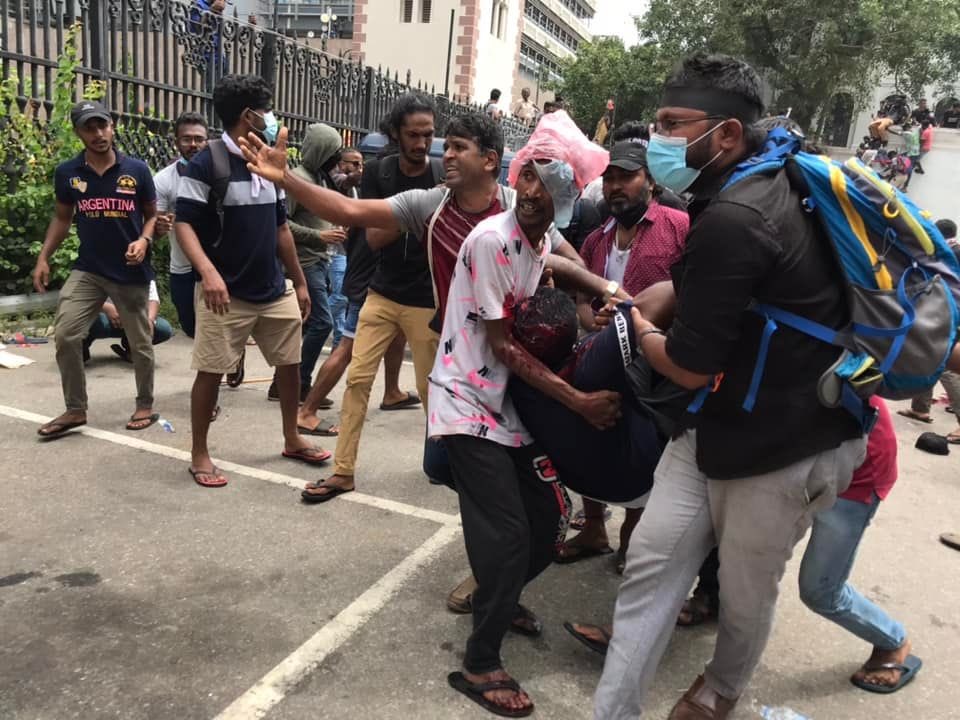
An injured protestor is carried away.
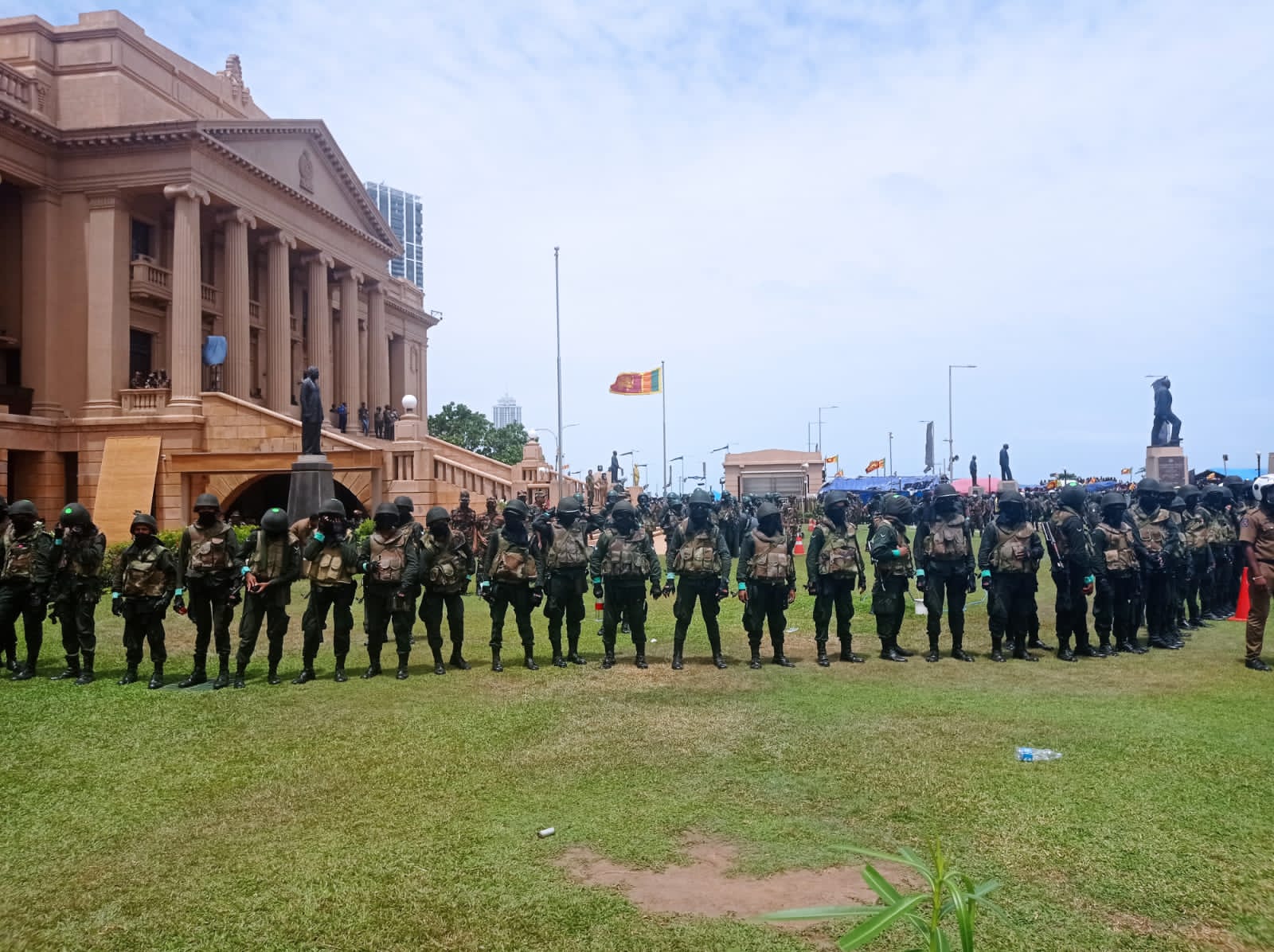
Security forces line up in Colombo this morning.
As protests rocked Colombo, Gotabaya Rajapaksa’s whereabouts remained unknown. According to The Guardian, two defence ministry sources said he has been removed from the official premises on Friday for his safety ahead of the demonstration. Footage from across the island increased speculation of where he may be sheltering, with video showing navy ships being loaded with luggage and a convoy of vehicles driving across Colombo’s main international airport.
With Rajapaksa seemingly missing, a meeting of the heads of Sri Lanka’s main political parties was called as demonstrations continued. Lawmaker Harsha de Silva tweeted that there had been an agreement calling on both Rajapaksa and Wickremesinghe “to resign immediately” with the Speaker to act as president for a maximum of 30 days, before the parliament elects a new head of state.
However, the leader of the Sri Lanka Muslim Congress tweeted that Wickremesinghe was holding out and had refused to resign.
As pressure mounted, just hours later Wickremesinghe said he would “accept the best recommendation of the Party Leaders today” and tweeted out his resignation.
It was too late to save his residence, where angry protestors continue to be gathered.
More to follow.
Dragged into the darkness by dictatorship, democracy is the only way out into the light
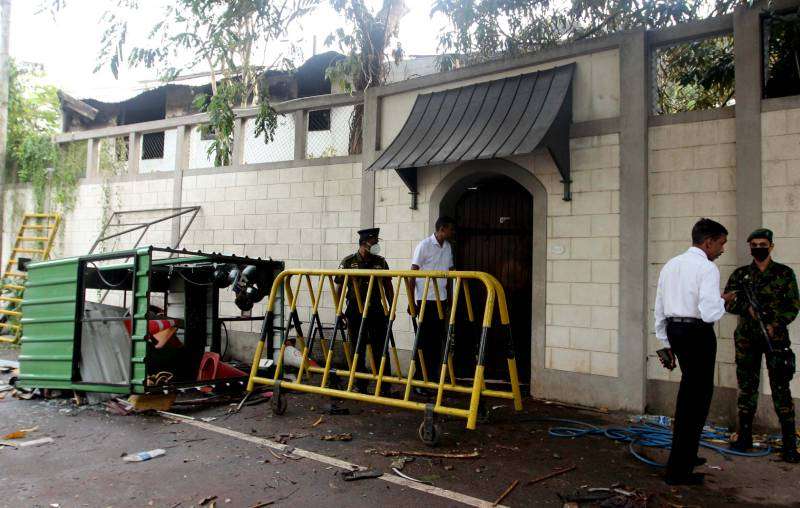
No matter how much anyone agrees with or opposes the policies of individual politicians, there is no justification for violence or arson
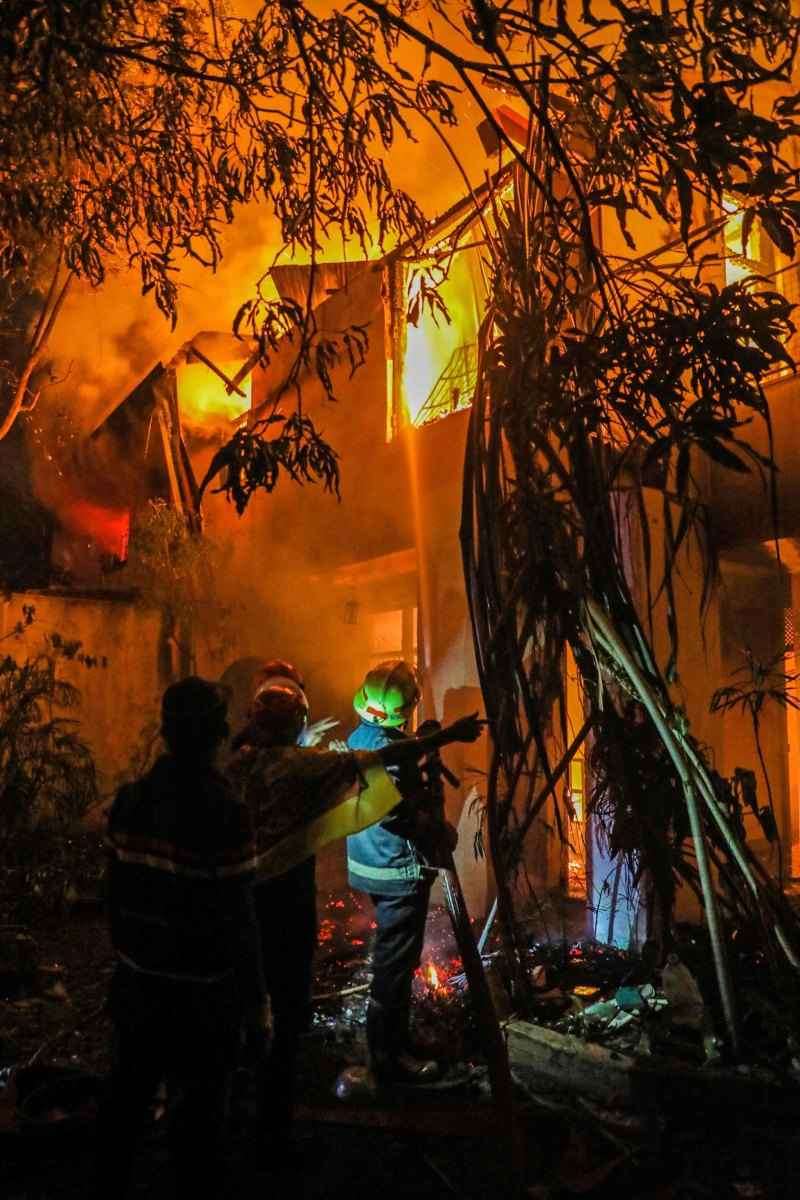
In this photograph taken on July 9, 2022, firefighters try to douse a fire at the residence of Sri Lanka's Prime Minister during protests in Colombo - AFP
Sunday, 10 July 2022
Saturday the 9th of July, was a moment of truth for our people. In coming together to Colombo in an unmistakable show of force, Sri Lankans brought to life the words of Albert Einstein that “in the midst of every crisis lies great opportunity.”
Sri Lanka has never faced a crisis of this magnitude, but I have no doubt that if our people can unite and remain singularly focused on the goal of saving our country, together, we will prevail. The whole country just came together to make clear that enough is enough. We have spoken with one voice against nepotism, graft, political witch hunts, ethno-nationalism and brazen administrative incompetence.
Now it is time for professionals, policy makers and political leaders to do their part. This is not a time for vengeance or more violence. There should have been none in the first place. It is a time for the Opposition to unite and do its duty, to send a message to the world that the Sri Lanka of tomorrow is a new Sri Lanka, one that is united and ready to regroup and rebuild.
The image of a corrupt, ethnically divided, bankrupt nation at the mercy of strongmen and militarised rule must give way to a new brand for a pluralist, united nation on the path to recovery and prosperity. From now on, the institutions that form the pillars of order and justice must know that they cannot get away with blindly following illegal orders.
The vast majority of our people have not taken to the streets looking for perks, political patronage or other personal benefits. They are fighting to save our country and are doing that duty to give future generations of Sri Lankans a chance at a better life. The Government has failed to protect its people and has failed to honour their oath to the people and the Constitution. The public service, especially the military, prosecutors and police, must not be the next to fail.
Never again can we tolerate an IGP, an Attorney General, military commanders or any of their subordinates who justify illegality by saying they were “just following orders.” This is the only way that they can restore their credibility and win back the faith of our people that has been squandered over a generation of cronyism.
It was chilling last night, to watch Police officers outside Ranil Wickremasinghe’s private residence targeting and brutally assaulting journalists, including a young woman, on live television. They thrashed reporters for simply doing their job under extremely difficult circumstances. As outrageous and barbaric as this attack was, it tragically and inexcusably gave way to one of the most disgusting acts of vandalism in our lifetimes. I was not alone in being shocked, devastated and enraged to see the historic home of one of our most senior political leaders set ablaze.
No matter how much anyone agrees with or opposes the policies of individual politicians, there is no justification for violence or arson. It is barbaric and unbecoming of anyone who claims to be fighting against what the Rajapaksas stood for. For better or worse, places like Medamulana and 55 5th Lane are iconic symbols of our democratic history and home to some of the most consequential decisions that charted the course of our nation.
They are home to politicians who at different times were elected by large majorities of our people. In a democracy, when such popularity weans, we speak with our votes and our voices on the street. You only need to look anywhere in the world to see that when regimes are dislodged through bloodshed, generations of bloodshed will follow. It is time that we stopped letting violence dictate the course of events.
The Rajapaksas were the capstone of a political culture in which far too often, Sri Lankans resorted to enacting political ends through violence and destruction. They bombed and burned buildings and left several journalists dead and ended the careers of many others through thuggery and brutality. At least now that the Rajapaksas are almost gone, it is imperative that we condemn all violence, especially attacks against people’s homes and against media personnel, in the strongest possible terms. Never again should anyone in Sri Lanka have to fear taking a political position or expressing an opinion, whether right or wrong, for fear of being abducted, assaulted, tortured, killed, or have their home or office bombed or burned. As the Rajapaksas go, their signature culture of violence must go with them and play no part in the next chapter of our country’s journey.
Now that the Government has collapsed, we must move swiftly to show the world that Sri Lanka will not descend into the kind of anarchy that plagued the countries who threw out strongmen during the Arab Spring. We have a proud tradition of constitutional rule and lawful transfer of power dating back to independence. Just as we had never defaulted on our debt before the Rajapaksas, we had never had a successful change of Government or leadership that was not dictated by law.
We must ensure that there is no question that the present regime lawfully ceases to hold power, and lawfully makes way for a democratically credible caretaker regime consisting of leaders with the necessary integrity and competence to stop the bleeding in the economy and to enact meaningful constitutional reform and put the country on the path to recovery.
This will be a long, arduous struggle. No sooner our political leaders make it possible, the people must get a chance to vote on who we want to be led by, and how we should be governed. It is essential that the new Constitution does not leave room for another Executive President who can overstay his welcome through fear or force. Under such a system, we will all have to rely on a dwindling number of talented professionals and courageous leaders to try and right the ship and mitigate the suffering of our people.
Rebuilding the credibility of our nation, demonstrating our stability to the world, ending the poverty and famine that has struck the poorest Sri Lankans must be the number one priorities of the next Government, but these things will take time. We will have to think very carefully about who we elect and what policies they put forward. We must respect the decision of our people and give our new leaders time to deliver. The entire world believes that it will take generations to repair the damage done by the Rajapaksas to the fabric of our society and to rebuild Sri Lanka into a functional state.
But the entire world also thought that the Mahaweli project would take decades. Sri Lanka did it in five years. No one thought that a country could win the cricket world cup less than a decade after building its national cricket infrastructure. In 2015, no one thought the Rajapaksas could be defeated. And in 2018 during the 52-day coup, no one believed that the people of our country could take the reins of Government back from the Rajapaksas.
And as recently as a few months ago, no one could have predicted that the Sri Lankan people would have the courage to rise up against a regime that commanded a two-thirds majority in Parliament with an iron fist and send them packing in less than two and a half years. On each of these occasions, the Sri Lankan people stunned the world by doing the impossible. Each one of us too can play a role by showing each other and the world that we stand united in times of need and crisis. The immediate task before us is to work together to stop our people from dying on the street, desperate for food, fuel and medicine. Even today, while some are desperate for these things, many live in abundance. Now we must realise that our country cannot be saved without hard work, courage and most importantly, personal sacrifice.
If you see someone in desperate need of the essential items that our Government has turned into luxuries, do what you can to share. Today, every ounce of fuel or handful of food makes a difference and can mean the difference between life and death for so many ordinary people.
For all the misfortune Sri Lanka has suffered at the hands of a few, our country and our people have a habit of surprising the world by outperforming expectations. We need to do so now more than ever. If we succeed in turning a new leaf and starting a new chapter, we can manifest the reality we want to see for our children
Subscribe to:
Comments (Atom)


.jpg)

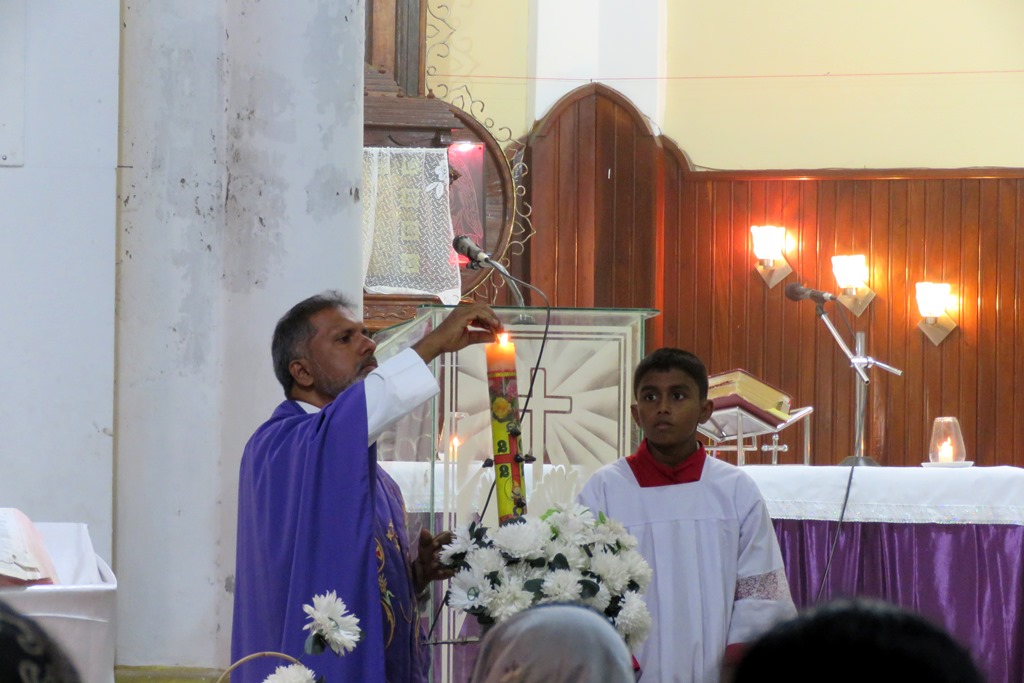
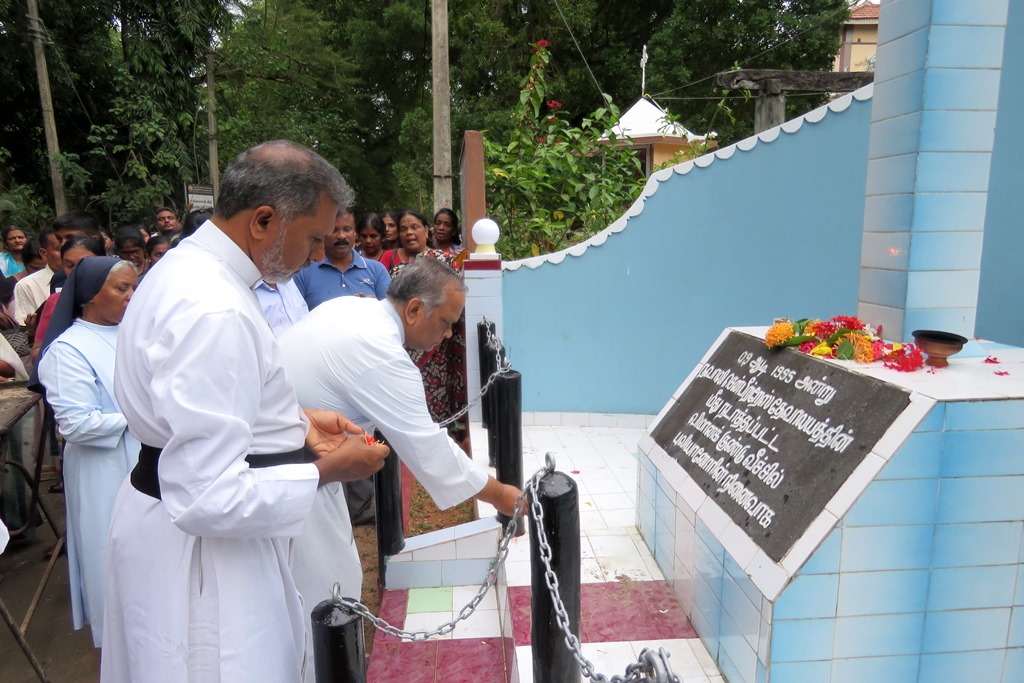
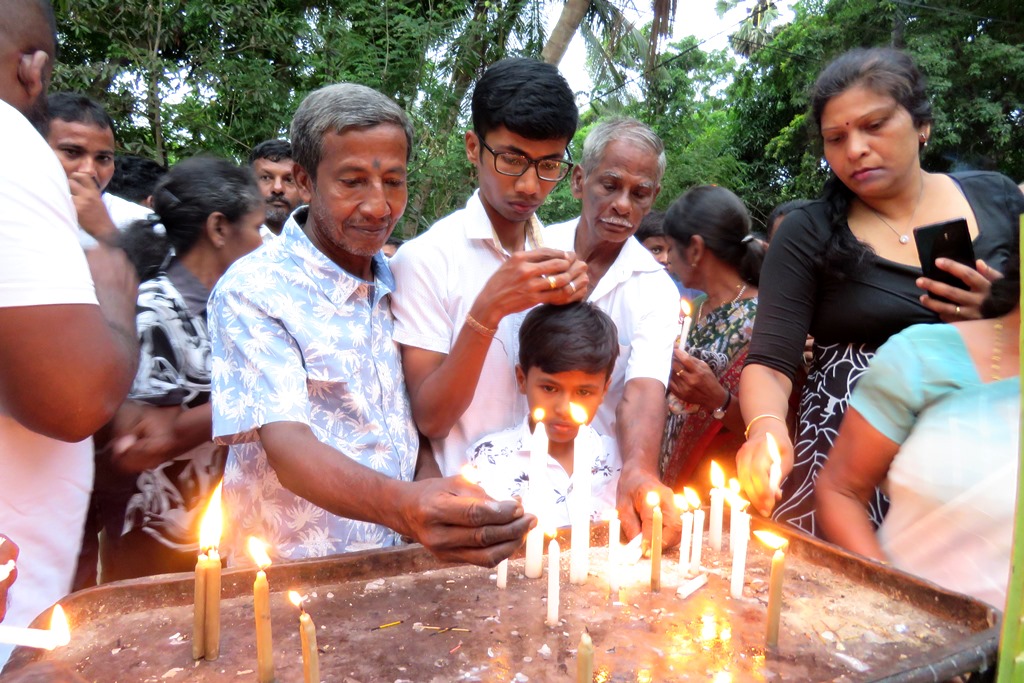
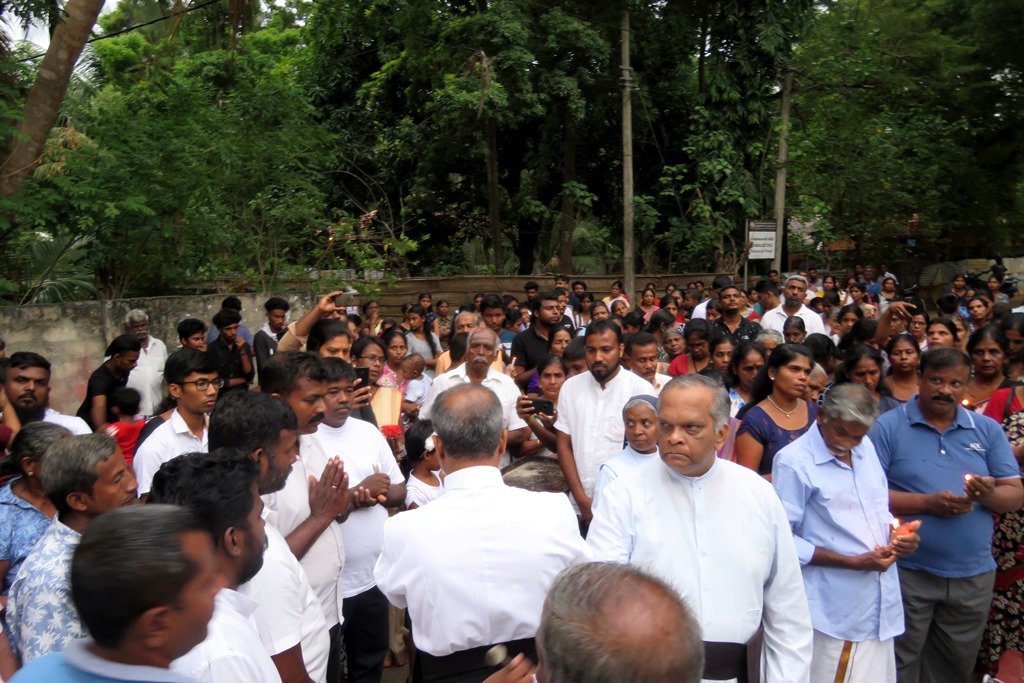

%20(1)%20(1)%20(1).gif)

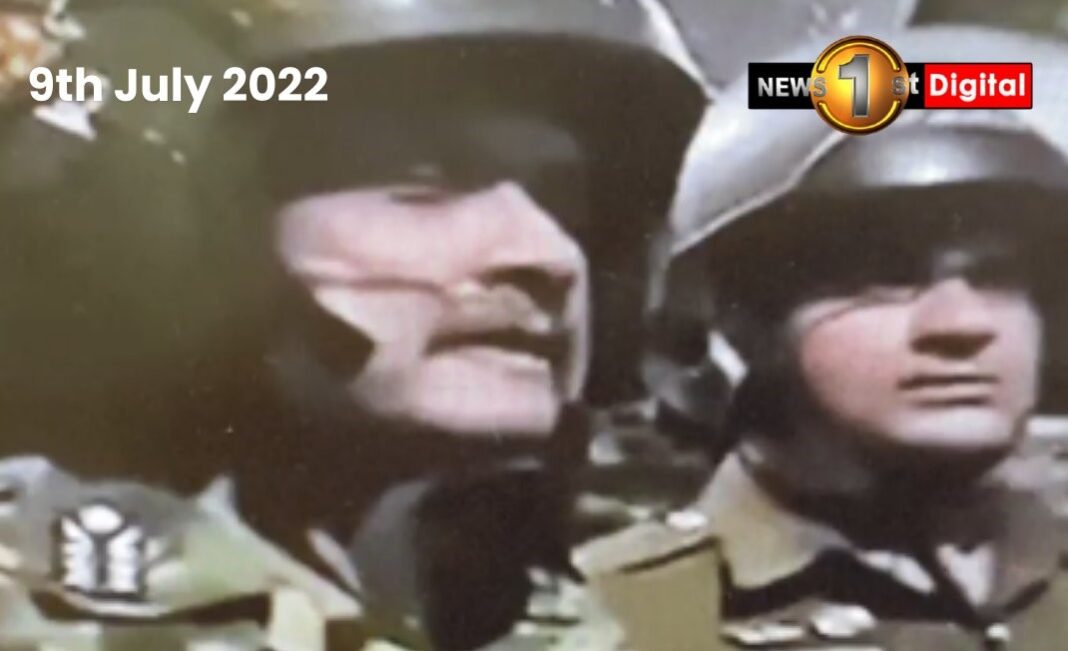


%20(2)%20(1)%20(1)%20(1).png)


%20(1)%20(3)%20(1)%20(1)%20(1).png)